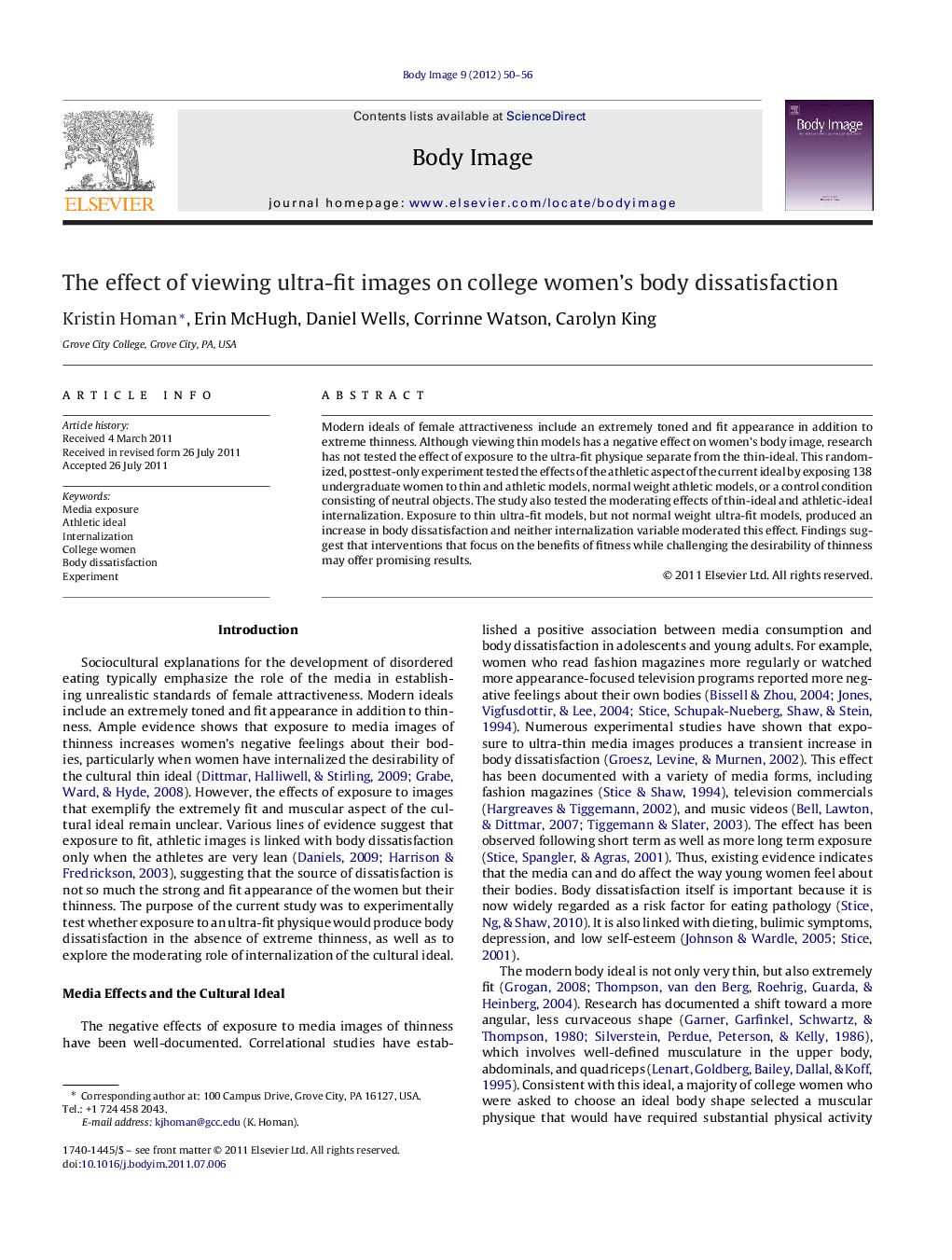| Article ID | Journal | Published Year | Pages | File Type |
|---|---|---|---|---|
| 903198 | Body Image | 2012 | 7 Pages |
Modern ideals of female attractiveness include an extremely toned and fit appearance in addition to extreme thinness. Although viewing thin models has a negative effect on women's body image, research has not tested the effect of exposure to the ultra-fit physique separate from the thin-ideal. This randomized, posttest-only experiment tested the effects of the athletic aspect of the current ideal by exposing 138 undergraduate women to thin and athletic models, normal weight athletic models, or a control condition consisting of neutral objects. The study also tested the moderating effects of thin-ideal and athletic-ideal internalization. Exposure to thin ultra-fit models, but not normal weight ultra-fit models, produced an increase in body dissatisfaction and neither internalization variable moderated this effect. Findings suggest that interventions that focus on the benefits of fitness while challenging the desirability of thinness may offer promising results.
► We tested whether exposure to the fit ideal would produce body dissatisfaction in the absence of thinness. ► Thin ultra-fit physiques, but not normal weight ultra-fit physiques, produced an increase in body dissatisfaction. ► Elevated internalization (general or athletic-ideal) did not intensify the experimental effect. ► Interventions that emphasize fitness may be beneficial for women at risk for eating disorders.
